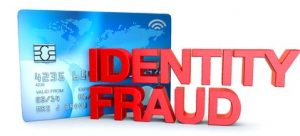 If you believe you are the victim of identity theft, visit the Federal Trade Commission’s identity theft website, which lists the steps you need to take. The FTC has a second website, “Immediate Steps to Repair Identity Theft,” with similar information.
If you believe you are the victim of identity theft, visit the Federal Trade Commission’s identity theft website, which lists the steps you need to take. The FTC has a second website, “Immediate Steps to Repair Identity Theft,” with similar information.
For individuals who believe they have been or will be the victims of identity theft, security freezes and fraud alerts are two ways to make your credit history more secure. Individuals who are not the victims of identity theft may sometimes want to consider using freezes or fraud alerts to protect their credit reports. There are some potential drawbacks to using freezes and fraud alerts, and neither prevents all forms of identity theft. Therefore, it is important to make an informed decision about whether these options are appropriate for you.
Security Freezes
A security freeze prevents others from accessing your credit report for the purpose of opening new accounts, unless you lift the freeze. A freeze has no effect on your existing accounts. If somebody else tries to open new credit in your name (or takes some other action requiring your credit history to be reviewed), the lender will not be able to access your credit report so the request will be denied. A freeze has no effect on your credit score, and you will still be able to access your report through AnnualCreditReport.com. There are several important issues for people considering a security freeze:
- You must lift the security freeze each time you want to apply for new credit. This can potentially delay your ability to open new credit.
- There may be fees associated with creating, temporarily lifting, and removing freezes. For Wisconsin residents, these fees are waived for victims of identity theft (you must provide law enforcement reports), and everybody else must pay $10 to place, lift, and remove freezes.
- Security freezes only prevent activity that requires access to your credit report. For example, somebody could still open a bank account in your name because banks typically do not check your credit report when opening new savings and checking accounts.
- You must manage freezes with all three credit bureaus–Equifax, Experian, and TransUnion–separately.
- Freezes might be especially useful for seniors because they may not need to open new credit and are increasingly targeted by ID theft scams.
- Children are also potential victims of ID theft, but freezing their reports can be difficult. See this New York Times blog postfor more information.
Consumers Union (publisher of Consumer Reports) developed a website that lists each state’s laws on freezes, including information on how to create a freeze and fees. In addition, each of the three credit bureaus has a website devoted to freezes:
Fraud Alerts
Fraud alerts are a free alternative to a security freeze. Fraud alerts are less powerful than freezes–fraud alerts flag your credit report, and freezes prevent access to your report. Fraud alerts are appropriate for individuals who believe they have been or are about to be victims of ID theft. A fraud alert forces lenders to take additional steps to verify your identity when somebody applies for credit in your name. Similar to a security freeze, fraud alerts only prevent ID theft that requires your credit report, such as applying for a loan. There are three types of fraud alerts (all are free):
- Initial fraud alert. Appropriate for individuals who believe they may become victims of identity theft. Lasts 90 days and gives you access to one free credit report from each bureau (these do not account against the free reports you can obtain through AnnualCreditReport.com).
- Extended fraud victim alert. Available to individuals who prove they are victims of identity theft. Lasts 7 years and entitles the victim to a total of 6 free credit reports the first year and 3 free reports in years 2-7 (these do not count against one’s free report limit from AnnualCreditReport.com).
- Active duty alert. Available to members of the military. Lasts one year.
To create a fraud alert, you only need to contact one of the three credit bureaus. That bureau will then contact the other two. Each bureau has a website about fraud alerts:




